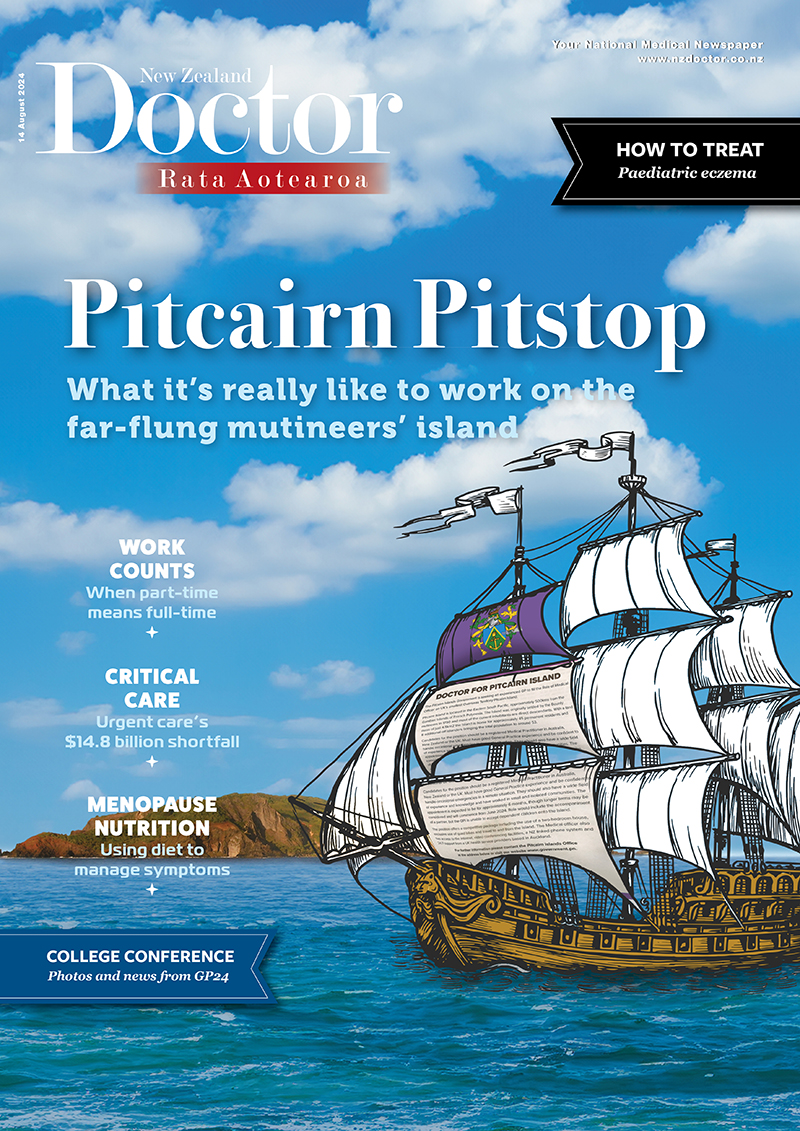Specialist GP Nikki Vadgama provides some tips to make your next paediatric eczema consult easier. She includes a review of new guidelines, resources, websites and medications for paediatric eczema management
RCPA expresses concern over direct to consumer genetic testing
RCPA expresses concern over direct to consumer genetic testing
The Royal College of Pathologists of Australasia (RCPA) strongly advocates that complex medical tests always be requested by, and after discussion with, an experienced medical practitioner. This approach applies to all medical tests. It is particularly relevant for complex genetic tests that predict the medical future of a child. It is not appropriate for genetic tests that deal with significant clinical issues to be marketed directly to patients, or for professional support to be provided only after the testing has taken place.
Professor Graeme Suthers, genetic pathologist and spokesperson for the RCPA, says, “We are greatly concerned at recent reports indicating that direct to consumer genetic testing for babies is taking place without the parents having had a discussion with their doctor prior to the test being done. The RCPA acknowledges that expanded screening of newborns could potentially provide information that may assist parents in caring for their child or making further reproductive plans. The College also supports the broad provision of information about genetic tests to the public. However, the provision of tests which predict the future of a person’s health carries significant ethical and social implications and requires appropriate professional oversight.”
The development of a newborn screening test requires careful consideration in order to assess what the test will achieve for the child and parents. Professor Suthers explains some of the key considerations that should be addressed before providing such a test.
• The selection of and justification for the genes included in the test.
• The performance of the test in terms of both detecting genetic mutations and in the impact on the child’s health. He notes that not all mutations cause disease.
• The benefit or overlap of the genetic test, versus current newborn screening programs that are already provided free nationwide.
• The integration of such tests in the overall patient care pathway, including access to other tests, medical assessment, and treatments that may be required.
• Consultation with professionals involved in the established care pathways for babies, such as obstetricians, clinical geneticists, paediatricians, and pathologists.
• The education of requestors and access to professional genetic counselling.
The National Pathology Accreditation Advisory Council (NPAAC) dictates the standards required of all Australian laboratories delivering medical genetic tests. The accreditation standard, ‘Requirements for Medical Testing of Human Nucleic Acids’, states that a key consideration prior to initiating a medical genetic test is that ‘The Laboratory must provide medical nucleic acid testing only in the context of a clinical service provided by a medical practitioner.’¹
The National Health and Medical Research Council (NHMRC) has also released concise guidelines on direct to consumer (DTC) genetic testing, which highlight the importance of professional involvement and education. It explains that ‘The NHMRC encourages the involvement of health professionals, including medical practitioners, clinical geneticists and genetic counsellors in the genetic testing process’ and ‘Professional involvement is important in providing individuals and their families with balanced information and an appropriate clinical context.’²
Professor Suthers concludes, “The standards for good medical practice in pathology place the patient’s welfare at the centre of all that we do. To ensure that this focus is maintained, it is essential that an experienced and independent medical practitioner be involved in guiding the selection, requesting, and use of complex medical tests. The RCPA does not support any organisation which offers direct to consumer testing without the involvement of the patient’s medical practitioner.”
Professor Graeme Suthers is speaking in his role as a representative of the RCPA.
For further information on the RCPA, visit www.rcpa.edu.au or see our updates on Facebook or Twitter - @PathologyRCPA or Instagram - @the_rcpa.




